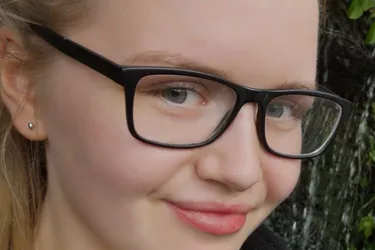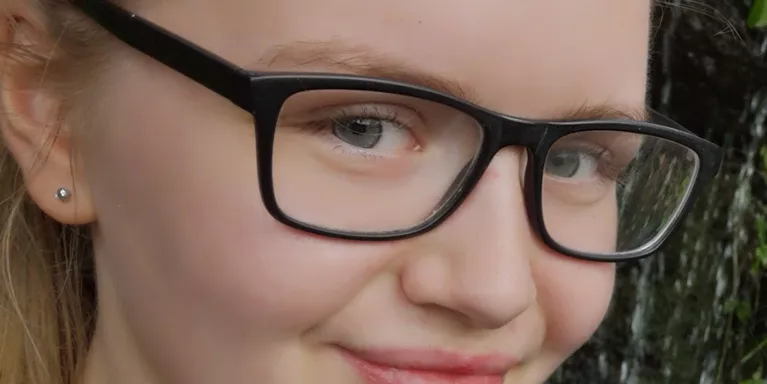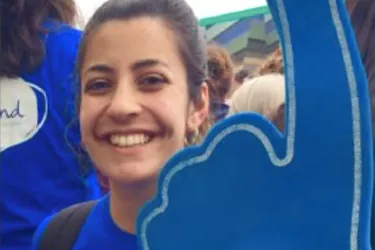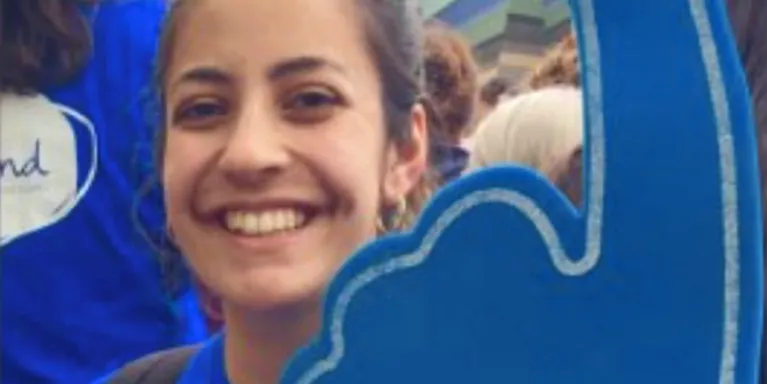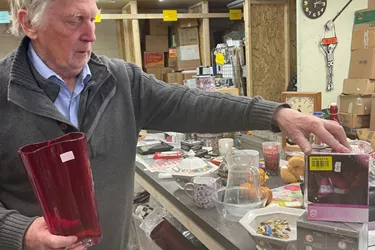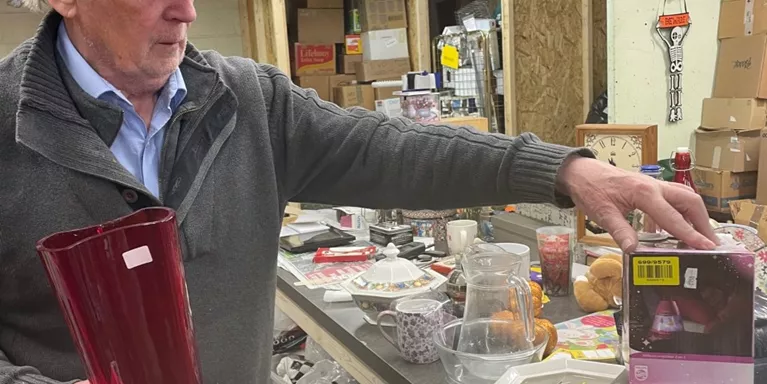How Mind gave me hope
Danika McElroy, is a passionate Mind supporter and volunteer who has been living with mental health problems for a decade. This year she wrote an introductory message to our annual review, which she shares here.
Alongside volunteering, Danika, 26, finds art the best way to express how she is feeling.
Follow Danika on Instagram at a_clutteredmind
Before getting involved with Mind, I was caught in a dark, delusional trap. One day, psychotic depression very nearly claimed my life. I felt so distraught and hopeless that taking my own life seemed like my only choice.
Little did I know that the following year, 2017/18, would be the best year of my life. Thanks to the platform that Mind has given me to speak out about mental health, I’ve been able to build a new life for myself. I feel very lucky to be here and blessed to introduce Mind’s annual review.
This year has been a turning point for awareness of mental health in the media and Mind has helped make this happen. They support people like me, who have personal experience of mental health problems, to speak up, which can give others confidence to get help.
Talking about mental health
It’s so important that organisations like Mind are helping people be direct and open about mental health. When I had my first panic attack, at 17, I didn’t know what was going on because I’d never heard of ‘mental health’. I was hyperventilating, my thoughts were racing and I felt like my head was swelling. It was so scary. I assumed that something physical was drastically wrong. No one even mentioned ‘mental health’ to me when I was taken into hospital for the first of three major depressive episodes.
After my third episode, I ended up in hospital again after work stress triggered severe low mood, irrational thoughts and dissociative symptoms. I knew things were going on around me but everything was blurred. I made plans to end my life but I was lucky – someone walked in, just in time.
In November 2016, two months after I had lifesaving electroconvulsive therapy, I went into my local Mind shop in Hove to see if I could volunteer. I was greeted with open arms and immediately felt valuable and at ease. It wasn’t long before I felt part of a community who embraced my mental health journey. I no longer had to say I was ‘fine’ when I wasn’t.
Helping me, helping others
With each day that passed, I felt stronger and, since then, many more doors have opened for me. I did a skydive from 13,000ft to raise money for Mind and have featured in stories in the media which have helped raise mental health awareness.
Speaking at the Mind Media Awards 2017 was incredible! Something I couldn’t have done before. And, for the last year, I’ve been volunteering at my local Mind in Brighton and Hove, helping those affected by mental health problems to find support.
These experiences have played a huge part in transforming my life. I no longer feel worthless and knowing I have a chance to help someone has become the strength I need to get out of bed in the morning.
A message of hope
I’m not the only person Mind has given a lifeline to. You’ll see from this annual review how they involve people with mental health problems in their work, from their fantastic online resources to training employers.
I’m now a recovery worker, supporting older adults living with a mental health diagnosis. I want to continue to spread a message of hope to show others, particularly young people, that you can still be successful despite mental health problems. My hope is that mental health and physical health become as important as each other.
It’s a lot better than it used to be, but we’re still not there. That’s why the work Mind does is so vital and needs your support. It’s an amazing charity that helps people feel more in control by giving them hope, just like they have given me.

Share your story with others
Blogs and stories can show that people with mental health problems are cared about, understood and listened to. We can use it to challenge the status quo and change attitudes.









